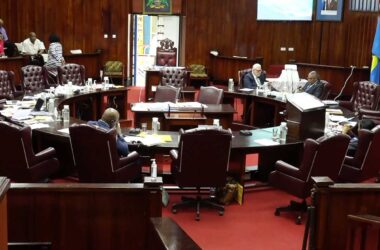
The National Competitiveness and Productivity Council (NCPC) is at the forefront of a project that aims to safeguard individuals and businesses facing economic adversity.
The main goal of the Insolvency Legislation Reform Project is to balance the interests between financial institutions and borrowers. The legislation encompasses the establishment of a neutral arbiter to harmonize the interests of both creditors and debtors.
“For example, if you are not able to make a specific payment on your mortgage or your loan, the Office of the Supervisor will help you with the negotiation to ensure that the bank does not exercise excessive pressure on the borrower. The legislation also ensures that financial institutions are able to recover the monies lent to the public which results in a decline in the cost of borrowing,” said Sharma Mathurin, NCPC Deputy Director.
One of the prevailing misconceptions regarding Insolvency Legislation is the belief that it gives lending institutions increased authority to pursue the assets of debtors in default. Mathurin clarified, and outlined crucial protections embedded within the legislation.
“The main objectives of this legislation is to ensure that there are proper laws in place and that there is an established Office of the Receiver or Supervisor of Insolvency to ensure that no one party exercises any pressure. Having insolvency legislation and an insolvency legal framework in place ensures that the financial institutions are able to recover the monies lent to the public which results in a decline in the cost of borrowing or simply put, interest rates will be a lot less.”
The legislation encompasses the establishment of the Office of the Supervisor of Insolvency, tasked with acting as a neutral arbiter to harmonize the interests of both creditors and debtors.
“They’re responsible for administering the Insolvency Bill. They will be responsible for the licensing of Insolvency Practitioners and one of their main functions is to coordinate the consumer proposals. For example, if you are not able to make a specific payment on your mortgage or your loan, then you have the Office of the Supervisor or the Receiver of Insolvency present to arbitrate or help you with the negotiation and ensure that the bank does not exercise excessive pressure on the borrower.”
The development of this legislation has seen extensive engagement from various stakeholders, with technical assistance from the International Finance Corporation (IFC). The Deputy Director of the National Competitiveness and Productivity Council said the legislation is anticipated to yield favorable economic outcomes, including a reduction in non-performing loans within the financial sector. She highlighted that comparable legislation has proven successful in other jurisdictions.













